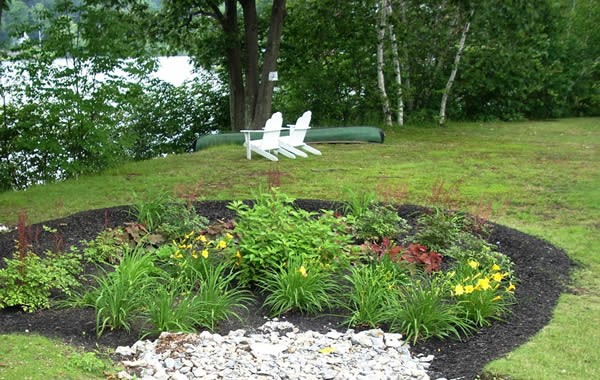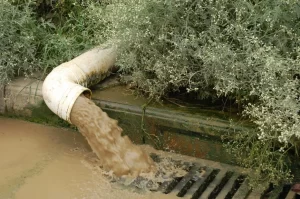Rain Garden. Image Courtesy of epa.gov
STORMWATER QUALITY – WHAT CAN YOU DO TOO?
If you live in Pennsylvania, you are well aware that one of the perks of living here is the beautiful surroundings. Pennsylvania has an abundance of open space, large expansive farm fields, and lovely views of rolling terrain. Of course, Pennsylvania has its share of what is considered urbanized area as well.
When we think of urbanized, we often think of more densely populated inner-city landscapes, but for the purposes of stormwater quality and MS4, urbanized areas are essentially anywhere that has a concentration of impervious (paved) surfaces. As such, residential housing developments are also considered urbanized areas.
When it rains, stormwater from impervious surfaces washes pollutants into storm drains, and ultimately into our streams and rivers. These pollutants are not only harmful to aquatic life, but can also find their way into our sources of drinking water as well. Not only are paved surfaces/driveways a source of pollutant runoff, but another source of impervious surface runoff is rooftops.
As a homeowner, there are several steps you can take to reduce the pollutant runoff from your property and help contribute to the overall better health of our waterways. One such step is to direct the water from your roof to your lawn, or to a raingarden, through your downspouts. A raingarden is essentially a landscaped bed planted with additional enriched soil in the bottom, along with specific plants that help filter pollutants from the rainwater. Raingardens can look just like a regular planting bed, but also provide numerous other benefits such as recharge groundwater through infiltration, and even provide wildlife habitat.
Another step homeowners can take is to capture rain runoff and direct it into a rain barrel. You can capture the rainwater and store it for later use, such as watering plants. The Penn State Extension offers rain barrel programs and workshops to assist homeowners in obtaining the proper size barrel for their particular use, as well as how to properly set it up for optimal use. You can visit their website at: https://extension.psu.edu/
A few other water quality enhancements include limiting the use of fertilizer/pesticides; plant trees; or use permeable paving/hardscaping vs. concrete/asphalt paving, which allows water to infiltrate into the soil.
Pennsylvania is a beautiful place to call home. Let’s keep it that way!




